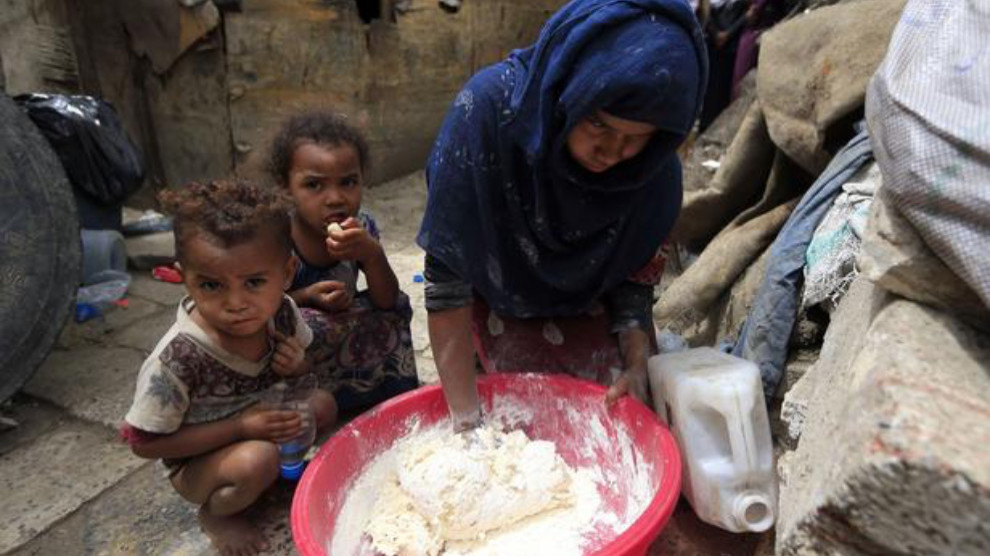UN: Yemen sees return to alarming levels of food insecurity
Economic crisis, conflict, floods, desert locusts – and now COVID-19 - could wipe out improvements in food security in parts of Yemen, UN agencies warn.
Economic crisis, conflict, floods, desert locusts – and now COVID-19 - could wipe out improvements in food security in parts of Yemen, UN agencies warn.

Economic shocks, conflict, floods, desert locusts and now COVID-19 are creating a perfect storm that could reverse hard-earned food security gains in Yemen, warns the latest Integrated Food Security Phase Classification (IPC) analysis released today by the Food and Agriculture Organization of the United Nations (FAO), the United Nations Children's Fund (UNICEF), the World Food Programme (WFP) and partners.
The analysis carried out so far in 133 districts in southern Yemen forecasts an alarming increase of people facing high levels of acute food insecurity, i.e. in Crisis (IPC Phase 3) and Emergency (IPC Phase 4) by the end of the year.
Acute food insecurity in these areas eased last year thanks to a massive scale-up of humanitarian assistance but all the good work could quickly be undone as the number of people facing high levels of acute food insecurity is forecast to increase from 2 million to 3.2 million in the next six months.
This would represent an increase from 25 percent (in February-April) to 40 percent of the population (in July-December) suffering from high levels of acute food insecurity even if humanitarian food assistance and access to those in need are maintained.
“The IPC is telling us that Yemen is again on the brink of a major food security crisis. Eighteen months ago, when we faced a similar situation, we were generously funded. We used the resources we were entrusted with wisely and massively scaled-up assistance in the districts where people were the hungriest and most at risk. The result was tremendous. We prevented famine. Unless we receive the funding we need now, we won’t be able to do the same this time,” said Lise Grande, the Humanitarian Coordinator for Yemen.
"The people of Yemen have already been through a lot and are resilient. But they are facing now too many hardships and threats all at once - from COVID-19 to Desert Locusts invasions. Small-holder farmers and families who depend upon agriculture for their livelihoods need our support now more than ever,” said Hussein Gadain, FAO Representative in Yemen.
“Yemen is facing a crisis on multiple fronts,” said Laurent Bukera, WFP Country Director in Yemen. “We must act now. In 2019, thanks to a massive scale-up, WFP and partners were able to reverse the deterioration in the worst hit areas of Yemen. The warning signs have returned and with Coronavirus pandemic added to the mix, it could get a lot worse if humanitarian action is delayed.”
“A dangerous combination of conflict, economic hardship, food scarcity and a crumbling health system has pushed millions of children in Yemen to the brink, and the COVID-19 crisis could make things even worse,” said Sherin Varkey, UNICEF’s acting Representative in Yemen. “More and more young children are at risk of becoming severely malnourished and requiring urgent treatment. Increased and sustained support is vital if we are to save these children’s lives.”